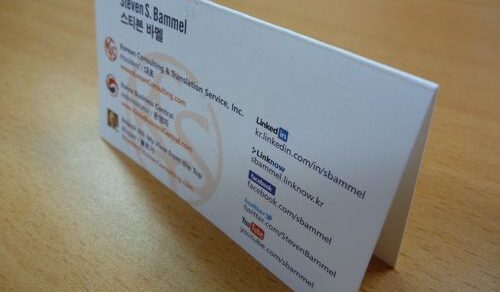Translations from English to Korean must be done by a native Korean speaker. Otherwise, the Korean writing style will not sound natural. However, sometimes only a native English speaker can fully grasp the nuances of a source text or "smell out" oddities with the source that need to be fixed.
Here are some examples.
Excel file with a long list of phrases to be translated for the GUI of a personnel management system
1. "Change Progression Steps (Hourly Only)". To a native English speaker, it seems suspiciously like "Hourly Only" should be "Hourly Employees Only". This would not be easily clear to someone without true English fluency, especially as there was no context provided in the source.
2. "Grade" – There was enough context from nearby entries for me to realize it means "Pay Grade". But is it reasonable to expect an average English>Korean translator to know this?
3. "Induction Checklist" – My team got this one right even though there was no context. It is a checklist of all the things an employee has to be taught upon entering the company.
4. "License" – In Korean, there is one word for a license to operate machinery and another to be licensed to practice a professional specialty. Which one is it?
5. "Lists" – The Korean word for lists of people is different than for lists of things. It's important to get clarification from the client on this.
A document related to accounting and taxes
6. "Other Properties" – Since it's plural, we know it's real estate. But if it has said "Other Property", it might not have been real estate and if not, there would have been a different Korean word to describe the collection of all of one's assets.
7. "Current debt (not paid by insurance)" – Is "not paid by insurance" a phrase by itself? Or is it more like "Current debt which is not paid by insurance". It makes a difference and without a quick fluency in English to shuffle through the options, it's easy to overlook the ambiguity.
8. "Multi-family" – As a fluent English speaker, this immediately caught my attention, thinking that "multi-family home" would probably be the correct complete phrase here (which it was).
A document related to medical care
9. "Check for interactions; this can happen when you take two or more medicines that affect how the other medicine works." – What does "this" refer to? "Check"? Or "Interactions"? It matters… In fact, as "this" is singular, it grammatically should be "check", but in fact, it was "interactions", which changed the translation completely.
10. "With good planning and organization, your pharmacist can work with you to:" – So, is it the pharmacist who has good planning and organization? Or does the helping work the pharmacist does require good planning and organization?



